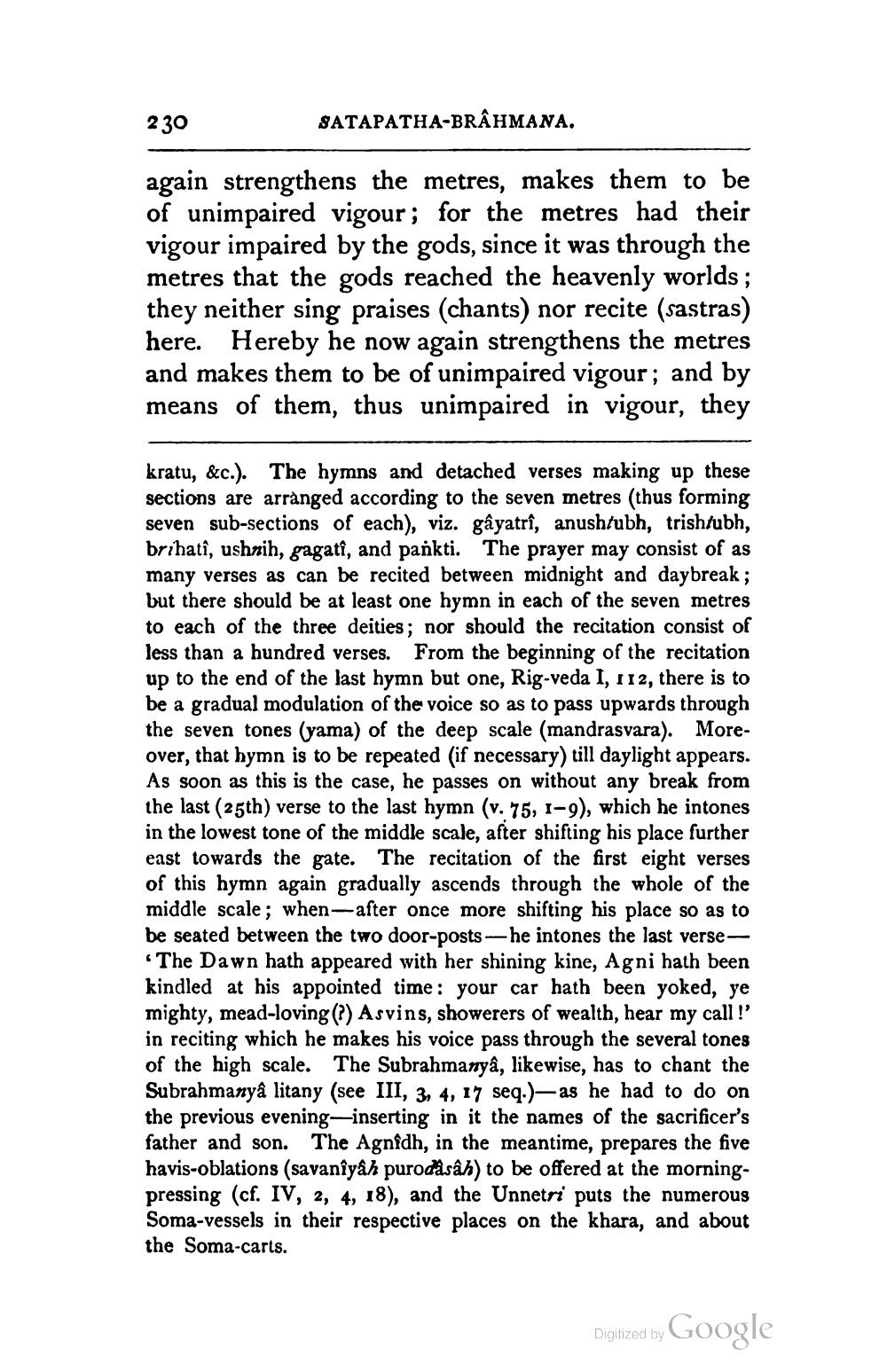________________
230
SATAPATHA-BRAHMANA.
again strengthens the metres, makes them to be of unimpaired vigour; for the metres had their vigour impaired by the gods, since it was through the metres that the gods reached the heavenly worlds; they neither sing praises (chants) nor recite (sastras) here. Hereby he now again strengthens the metres and makes them to be of unimpaired vigour; and by means of them, thus unimpaired in vigour, they
kratu, &c.). The hymns and detached verses making up these sections are arranged according to the seven metres (thus forming seven sub-sections of each), viz. gâyatrî, anush/ubh, trish/ubh, brihatî, ushnih, gagatî, and pankti. The prayer may consist of as many verses as can be recited between midnight and daybreak; but there should be at least one hymn in each of the seven metres to each of the three deities; nor should the recitation consist of less than a hundred verses. From the beginning of the recitation up to the end of the last hymn but one, Rig-veda I, 112, there is to be a gradual modulation of the voice so as to pass upwards through the seven tones (yama) of the deep scale (mandrasvara). Moreover, that hymn is to be repeated (if necessary) till daylight appears. As soon as this is the case, he passes on without any break from the last (25th) verse to the last hymn (v. 75, 1-9), which he intones in the lowest tone of the middle scale, after shifting his place further east towards the gate. The recitation of the first eight verses of this hymn again gradually ascends through the whole of the middle scale; when-after once more shifting his place so as to be seated between the two door-posts-he intones the last verse
The Dawn hath appeared with her shining kine, Agni hath been kindled at his appointed time: your car hath been yoked, ye mighty, mead-loving(?) Asvins, showerers of wealth, hear my call !' in reciting which he makes his voice pass through the several tones of the high scale. The Subrahmanyâ, likewise, has to chant the Subrahmanyâ litany (see III, 3, 4, 17 seq.)—as he had to do on the previous evening-inserting in it the names of the sacrificer's father and son. The Agnidh, in the meantime, prepares the five havis-oblations (savanîyâh purodåsâb) to be offered at the morningpressing (cf. IV, 2, 4, 18), and the Unnetri puts the numerous Soma-vessels in their respective places on the khara, and about the Soma-carts.
Digitized by Google




